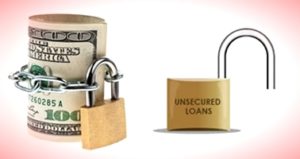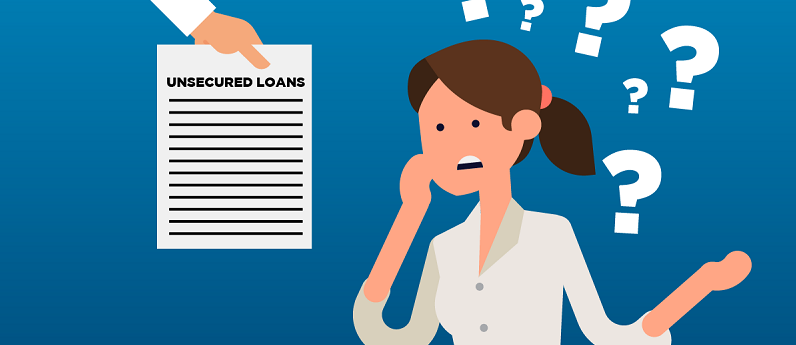When you decide on opting for a loan, there are some factors that will help you determine if you need a certain type of loan or not. There are two types of loans, Secured and Unsecured Loans. An unsecured loan is a type of loan which issued and provided only if the borrower is worthy of taking credit. This particular loan type doesn’t require you to use any collateral as an asset. The terms of these loan types are two-phase process, approval, and receipt.
An unsecured loan is a complete opposite of a secured loan. Secured loan defines that the borrower pledges and keeps his collateral as a guarantee. This acts as the lender’s security. Unsecured loans are bigger risks for the lender since the rate of interest is typically high and the credit score expected to be published is also high. In some cases, the lender may allow loan applicants with insufficient credit to offer a cosigner. The cosigner can legally obligate to fulfill the debt in case the borrower becomes a defaulter.

There are two types of unsecured loans, revolving line of credit and fixed-interest installment loans. They offer perks insurance policies, warranty, free airfare, and hotel stays. Some people who issue the loan also have discounted purchases involved, movie tickets, and much more.
PROS OF UNSECURED LOAN
- There is no risk to the personal property since you haven’t kept any as collateral. If you get laid off, nothing can bother you since there is nothing the lender can sell to reimburse the money.
- The process to apply for an unsecured loan is similar, since the banks and credit unions have made the whole process simpler and easier. You can apply for the loan on peer-to-peer lending from the comfort of your home.
- Unsecured loans have an added advantage that in the worst case scenario the balance that is due gets wiped away if you file for bankruptcy. However, one must keep in mind that this shouldn’t be the intention of opting for a loan. This can count under fraudulent and forgery. Activity. An unsecured loan has its own way of wiping off the personal loan.
CONS OF UNSECURED LOAN
- The loan amounts are small. Unsecured loans are good for the people who wish to borrow a loan, but it can be fairly risky for lenders. This is why the loan is provided for a lesser amount. The risk that there exists with no collateral involvement is the major reason for risk. Recouping the money is greater.
- Lenders charge quite a high rate of interest to justify the risk that there involves in providing unsecured finance.
WHEN SHOULD YOU CONSIDER UNSECURED LOAN?
To procure an unsecured loan you must have a good credit score with decent credit standing. Some lenders specialize in the lending process to consumers who may not qualify for loans from traditional sources, financial institutions, and banks. Often, people wish for assistance in loan processes.

Loan on Phone acts as your personal financial assistance, offers you much-needed consultancy for procuring loans on competitive terms and at suitable solution. Loan on Phone helps you through the process with providing you full documentation, describing the service level and also the terms of business. The specialized services provided includes Loan against property in Delhi NCR, loan against unapproved property, and loan against industrial, and much more.





